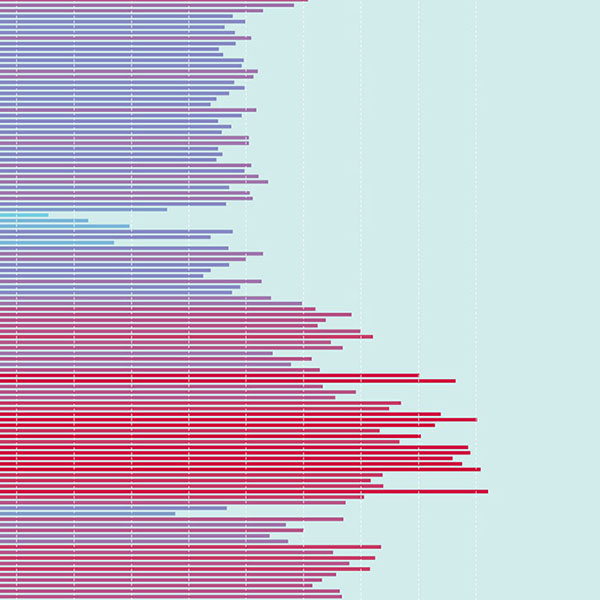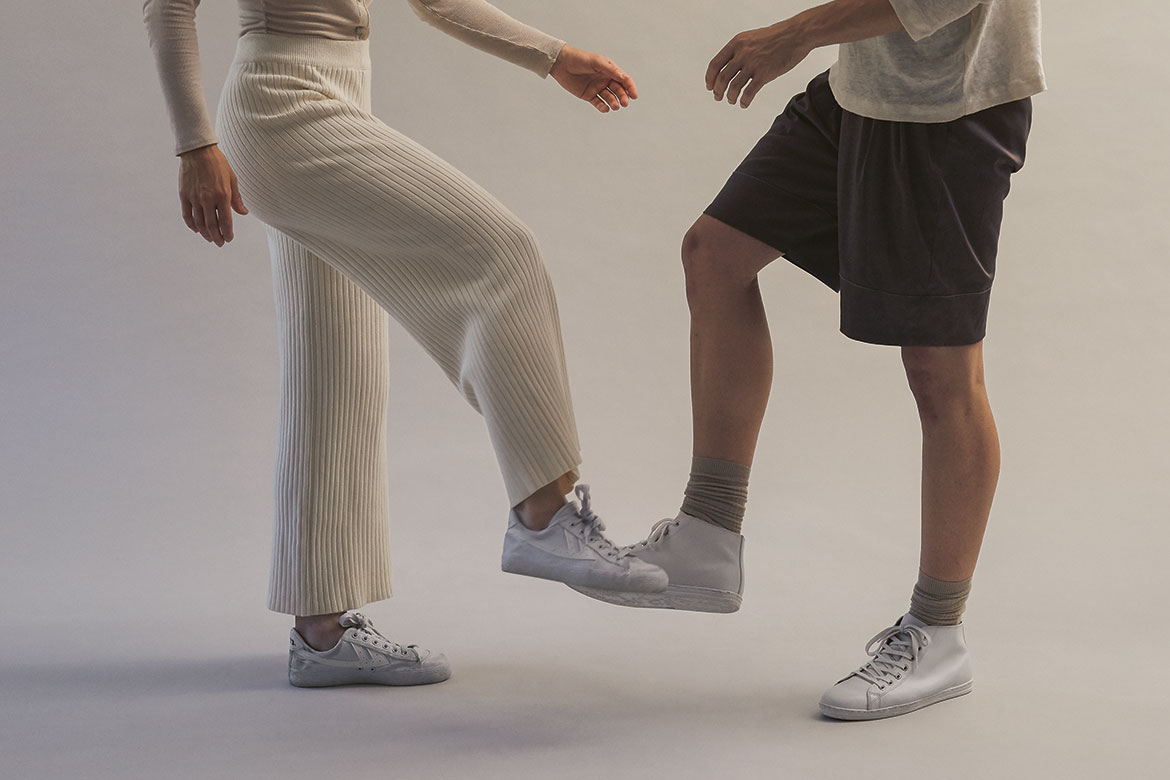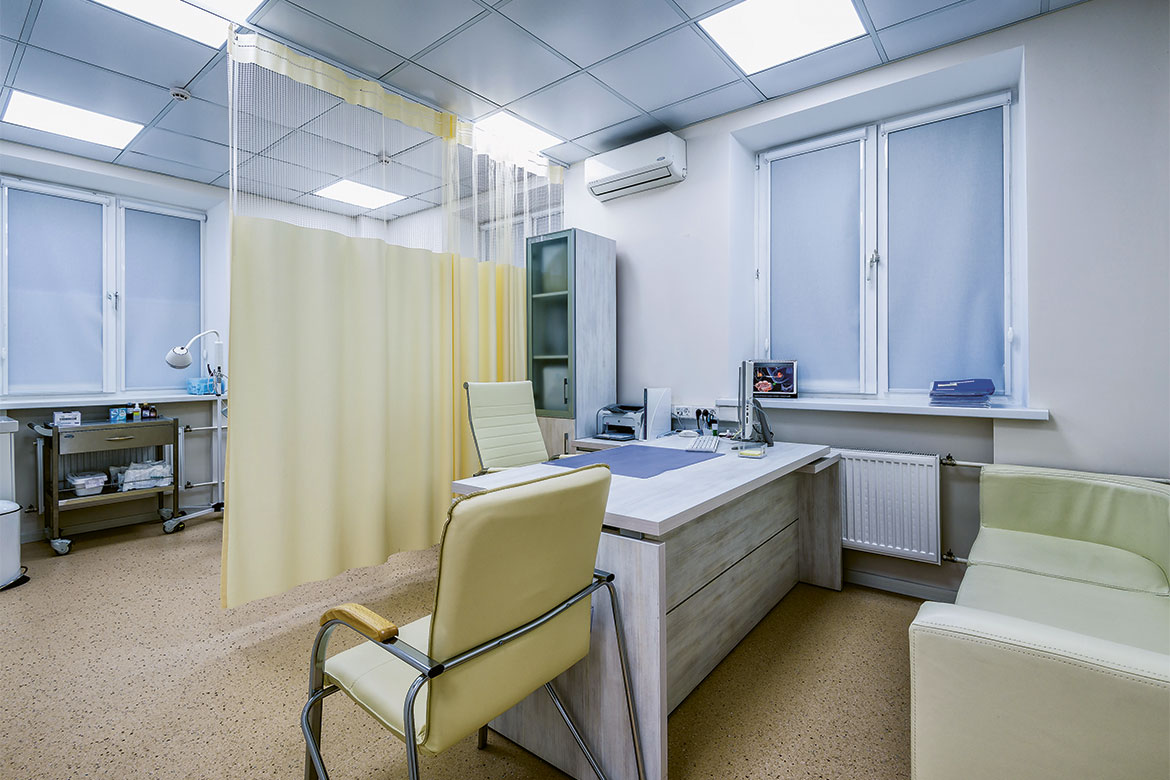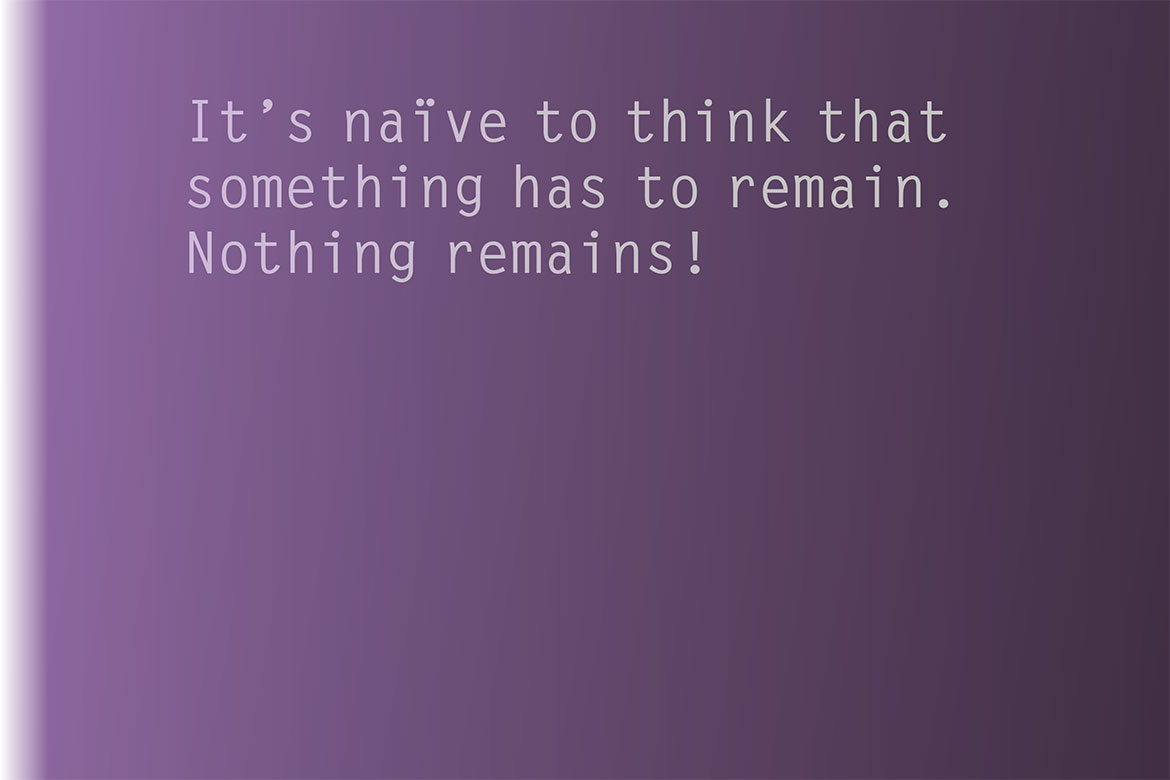Feature: Driven by personal concerns
Personal involvement in your own research
The art of investigating your own history or illness. Five researchers tell us how their personal experiences have influenced their scientific work – or otherwise.

Dennis Rodgers | Photo: Anoush Abrar
“Joining the gang was a survival strategy”
“I went to Nicaragua in 1996 as part of a doctorate in social anthropology to study solidarity survival strategies for the poor in a post-revolutionary context. I was 23 years old. Arriving in the capital Managua, I suffered two shocks: first, the revolution was clearly a thing of the past for most people, as was solidarity. Secondly, I was beaten in the street by a gang, three days after my landing. It was quite traumatic.
“I was trying to find a poor neighbourhood to live in. I got into the bad habit of being beaten by gangs during my city tours. They were territorial gangs that protected their neighbourhood and prohibited the entry of foreigners.
“Of course I wanted to leave Nicaragua, but I was afraid that my university would consider me a failure. So I stayed, but today I tell all my doctoral students that sometimes you have to change your field and that research is always something random.
“I was finally able to settle in a poor neighbourhood, famous for its fierce gang. I tried to develop friendly relations with its members. Although scared to death, I sat in the street to meet people. A gang member came to ask me for a cigarette. We talked. The next day he returned in a group.
“For two weeks I had more or less innocuous interactions with them, then they started by testing me. One day they asked me to help them steal at the market. I refused. ‘You’re just going to attract the seller’s attention, we’re going to steal’, they said. I accepted. They stole eight panties that they asked me to resell to women in the neighbourhood. It was their idea of humour. Another day, I had to defend myself when a gang member threatened me with a knife. They then declared that I was one of their own and offered to let me join them. I accepted. Joining the gang was a survival strategy, not a research strategy.
“I insisted on ‘observer member’ status and announced that I did not want to use a gun, attack other neighbourhoods, or beat people. On the other hand, I defended myself and protected the people of my neighbourhood during attacks by rival gangs.
“My involvement in the gang led me into ethical dilemmas. I’ve done things I’m not very proud of and I’ve seen and heard illegal things, but in the end I can still look at myself in a mirror at all levels. I also discovered that ethics is often very situational.
“This experience has shown me how essential certain ethical principles are. I had to develop techniques to protect the identity of my interlocutors, which I still use today. I make sure that my field notes are unusable for others in case they are seized by the police, for example. I change the names, mix French, English and Spanish and use codes. There are also things that I do not note, which limits my research, but my first responsibility is to those who have opened their lives to me without asking for anything in return.
“After getting involved on the spot, I was able to continue to follow the evolution of the gang. The new generations are always ready to talk to me as a ‘senior elder’. This opportunity to do longitudinal research allowed me to understand how gangs could be a prism through which to understand the evolution of Nicaraguan society and also pushed me to develop comparative research. My experience has been very useful to me and has given me a basis from which to ask questions from a ‘different’ point of view during my current research on gangs in Marseille. This has allowed me to develop alternative interpretations to those, often very sensationalist ones that predominate”.

Jasmin Barman-Aksözen | Photo: Anoush Abrar
“I only found out by testing my own blood”
“One in 100,000 – that’s how small the probability is of being born with the metabolic disorder EPP. There are only some 70 people with it in Switzerland today. I’m one of them – and I’m also researching into it. Unless I take my medication, I’m extremely sensitive to light. Ever since childhood, every ray of sunshine, every reflection of light on water, even the light from certain electric lamps can cause me immense pain. It’s as if my veins were burning from the inside. Today, I know that it’s unutilised metabolic products stored in my veins that react with the light, causing second-degree burns to my skin. But, because you can’t see the disease, it went undiagnosed for a long time. Until I was 27, I still didn’t know what was wrong with me.
“The fact that I was studying biology had nothing at all to do with my illness. At first, I was really interested in plant genetics and had given up any hope of finding an answer to my pain. It was only when I was finishing my studies that I met someone else with the same symptoms who was able to describe my life exactly. That was an epiphany! She invited me to a scientific symposium where I met my future doctoral supervisor, and I got involved in researching into EPP. At first, I was afraid that it might all be too close to home. But what I do is very abstract: I stand around in the laboratory and work with cell cultures.
“When you’re personally affected, perhaps you delve even deeper into the subject matter. What’s more, as both a patient and a patient representative for rare diseases, I’m well connected and get important information about the data. This is how I was able to discover an important factor in the iron metabolism of people with EPP. I was only able to see it because I took my own blood samples during iron therapy and monitored them closely.
“I also knew from other patients that they noticed a deterioration due to iron. Many doctors hadn’t realised this. Wow! When you’ve got EPP yourself, such a discovery makes you even happier. I don’t see any conflict arising from my own personal involvement. Ultimately, as a patient, I have the greatest interest in ensuring that the data are objective”.

Tobias Urech | Photo: Anoush Abrar
“I find it more fascinating than offensive”
“I’m gay, and I’m also researching into topics such as queer history and the history of sexuality and gender. I find the concept of being ‘personally affected’ by one’s research rather inappropriate in this context. I’m not ‘affected’ by being gay, which sounds as if it were something negative. Of course I have a personal connection to my field of research, and this also leaves a mark on my work. But I see this close connection as something immensely positive. At present, I’m looking at friendship as a space of possibility for homoerotic desire in the 20th century. I’m examining four pairs of friends and am working with sources such as letters, diaries and autobiographies.
“To give you one example: there were two women, both married to men, who fell in love with each other in the 1930s. They were able to live out their love within the framework of ‘friendship’ without enduring any negative consequences in society. In the sexual sciences in around 1900, you sometimes come across statements that sound disconcerting today. My doctoral supervisor once told me that in such situations she feels like a botanist, wondering what kind of unusual plant she’s discovered. For my part, I find these things more fascinating than personally offensive. I’m interested in the kind of mindset that lies behind such statements.
“I also perform as the drag queen ‘Mona Gamie’. The stories, songs and anecdotes that I encounter in my research then flow into my stage programme. For me, this is a form of queer activism. I used to be active in the LGBTQI youth organisation ‘Milchjugend’ and was also involved in party politics. Today, I’m focusing on science and agree with Virginia Woolf when she said: ‘Thinking is my fighting’.
“It’s very important to conduct honest research, but I think it’s illusory to imagine that science and scholarship are fundamentally neutral and objective. We are all shaped by what we believe. That’s why, on the university website, I’m open and transparent about my personal connection to my field of research. What I want to emphasise is this: Every researcher is also a private individual, and you can’t separate the two”.

Asmaa Dehbi | Photo: Anoush Abrar
“I can more easily cope with situations of racism”
“I was interested in anti-Muslim racism to better understand how, after 11 September 2001 and the anti-minaret initiative in Switzerland, the word ‘migration’ was associated with Islam, and ‘the Other’ became ‘the Muslim’. Growing up in Switzerland in an Algerian family, I personally experienced this transition. I was no longer perceived mainly as an ‘Arab’, but as a ‘Muslim’, regardless of whether I was practising or not. I have also suffered from this racism. For example, when I was younger, adults constantly asked me if I was going to wear the veil or if I was distancing myself from violent events abroad.
“To be marginalised this way and reduced to my religious identity made me sad and angry. My reaction was to go into academia. The ‘outsider within’ position allowed me to question apparent reality and made me see the lack of representation of Muslims in science. I knew that as a woman perceived as a Muslim, I would have to do more to be considered an expert.
I adhere to feminist ‘standpoint theories’ that value personal involvement in research and argue that all knowledge exists in a context and that everyone has biases, even or especially non-marginalised people who believe they think in an ‘objective’ way. It is then a matter of making one’s positioning transparent and thinking critically about it.
“Working on discrimination, it is essential to reduce it as much as possible in my research. My work should not be directed against other marginalised groups, and I try to be aware of the risks of essentialising and absolutising identity. My research impacts my life. I’m starting to detect racism everywhere, which is often tiring, but I can also more easily face such situations, because I put myself in ‘observer’ mode and convert them into raw material to work on. Being able to recognise anti-Muslim racism, analyse it and criticise it makes us stronger and provides us with data that can change things”.

Nathalie Herren | Photo: Anoush Abrar
“Groups that are already vulnerable ought not to be stigmatised even further”
“I’m researching into political psychology, and I suffer from depressive episodes. During acute episodes I’m unable to work – though this happens only rarely these days. Today I’m relatively stable, my medication is working well and I’m getting therapeutic support.
“My research has taught me that psychological factors influence how we think and act politically. At present, we’re investigating the political consequences of depressive symptoms. Mental health pressures are becoming increasingly common. This is why we need to find out more about the role that these pressures play in our democracy. Existing research has shown that people with depressive symptoms are less likely to get involved in politics. And our initial analyses suggest that those affected are more inclined to support populist ideas and parties.
“When I’m in a severe depressive episode, I don’t vote or participate in referenda. I just don’t have the energy. But I’ve not noticed any tendency on my part towards populism. To me, this proves that we’re not examining deterministic connections. I’m open about my illness among my colleagues and students. Many appreciate that. But I’ve also noticed that many still feel uncertain when it comes to talking about it – often because they’re afraid of saying the wrong thing.
“My openness helps to remove taboos about mental health issues and makes it possible for me to incorporate my own perspective actively in my research. For example, I’m especially sensitised towards the possibility that people might misuse our results or misinterpret them. It’s important to me that vulnerable groups ought not to be stigmatised even further. We don’t want to indulge in narratives that portray mentally ill people as dangerous or inherently undemocratic. Of course, everyone brings their own influences and biases with them. But this only becomes problematic if you remain unaware of them and don’t engage with other perspectives”.



